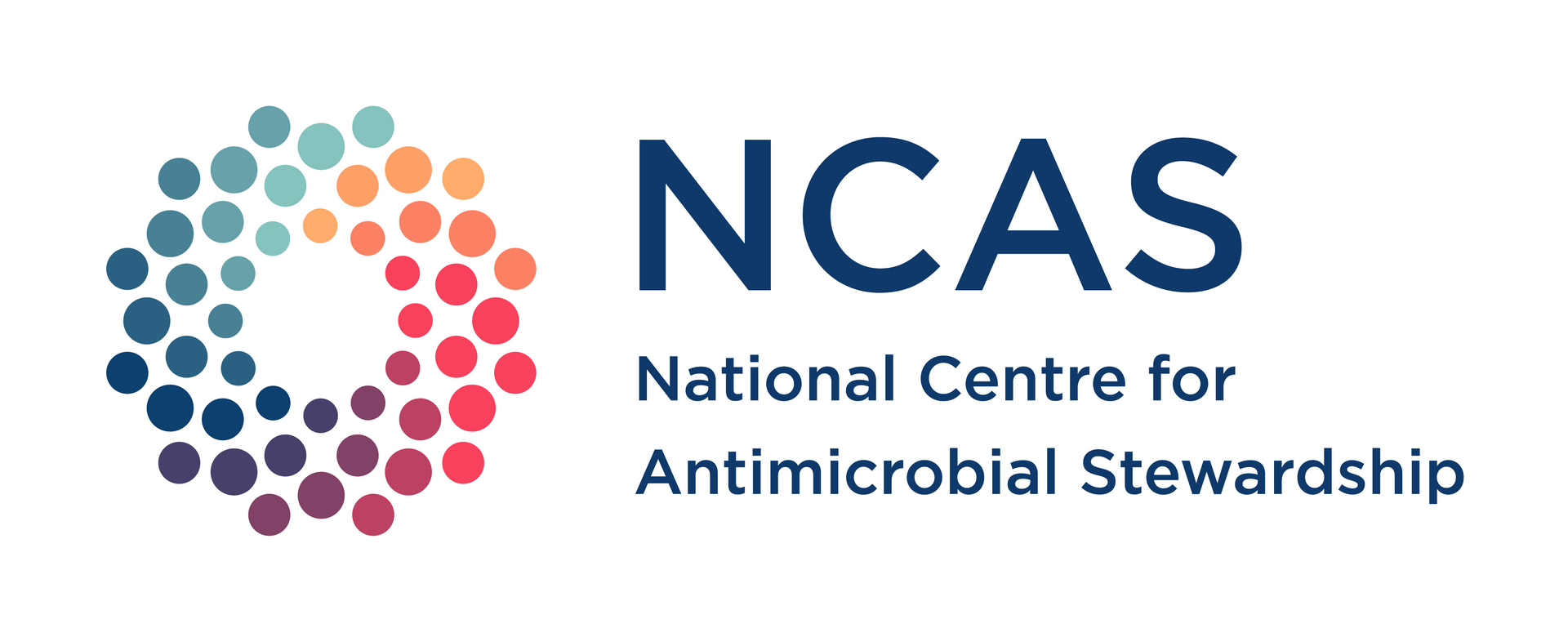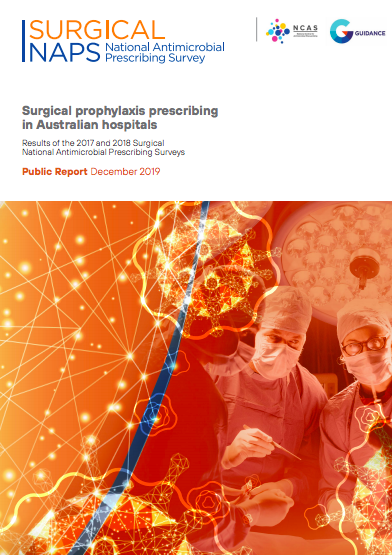General Practice
Community and general practice stream
Antibiotics are among the most common medications prescribed in general practice. Data on the volumes of antibiotics being used in the community are now being gathered (for example, from the Pharmaceutical Benefits Scheme), but there is very little information available regarding the indications for use and the appropriateness of antibiotic prescriptions. Work has already been done in this area, but there is more to be learnt about prescribing outside the residential aged care context.
Using data already collected as well as new data, we will examine patterns of antibiotic use and adherence to guidelines in general practice. We will explore attitudes that might influence prescribing, and work with general practitioners (GPs) and others to determine acceptable methods to deliver information and enhance antimicrobial stewardship (AMS).
Ultimately, we intend to gather information about the education needs of GPs and others with regard to antimicrobial prescribing, and design, trial and evaluate interventions with a view to identifying those that may help improve antimicrobial use in the community.
The aims of our research on antimicrobial use and AMS in general practice are to:
- Describe patterns of antimicrobial prescribing from GP electronic medical records, and identify AMS targets;
- Develop a framework to support AMS in general practice:
- Describe the roles and responsibilities of stakeholders;
- Describe policies and evidence-based strategies to support GPs to provide appropriate antimicrobial prescribing;
- Design and develop decision aids for GPs to use in consultations; and
- Design and develop antimicrobial decision-support tools for GPs.
The aims of our research on understanding opportunities for GP-community pharmacist collaboration for AMS are to:
- Describe interventions involving community pharmacists that can help improve antibiotic prescribing by GPs;
- Describe the awareness of and perceptions about AMS among Australian GPs and community pharmacists;
- Describe commonalities and differences in the views of GPs and community pharmacists regarding evidence-based AMS strategies that could be implemented through their collaboration; and
- Develop a GP-community pharmacist antibiotic care model to drive AMS in general practice and design a pilot study.

A novel GPPAS model: Guiding the implementation of antimicrobial stewardship in primary care utilising collaboration between general practitioners and community pharmacists Sajal K Saha, Karin Thursky, David C.M. Kong and Danielle Mazza Abstract Interprofessional collaboration between general practitioners (GPs) and community pharmacists (CPs) is central to implement antimicrobial stewardship (AMS) programmes in primary care. This study aimed to design a GP/pharmacist antimicrobial stewardship (GPPAS) model for primary care in Australia. An exploratory study design was followed that included seven studies conducted from 2017 to 2021 for the development of the GPPAS model. We generated secondary and primary evidence through a systematic review, a scoping review, a rapid review, nationwide surveys of Australian GPs and CPs including qualitative components, and a pilot study of a GPPAS submodel. All study evidence was synthesised, reviewed, merged, and triangulated to design the prototype GPPAS model using a Systems Engineering Initiative for Patient Safety theoretical framework. The secondary evidence provided effective GPPAS interventions, and the primary evidence identified GP/CP interprofessional issues, challenges, and future needs for implementing GPPAS interventions. The framework of the GPPAS model informed five GPPAS implementation submodels to foster implementation of AMS education program, antimicrobial audits, diagnostic stewardship, delayed prescribing, and routine review of antimicrobial prescriptions, through improved GP–CP collaboration. The GPPAS model could be used globally as a guide for GPs and CPs to collaboratively optimise antimicrobial use in primary care. Implementation studies on the GPPAS model and submodels are required to integrate the GPPAS model into GP/pharmacist interprofessional care models in Australia for improving AMS in routine primary care. Read the full paper here . Citation : Saha, S. K., Thursky, K., Kong, D., & Mazza, D. (2022). A Novel GPPAS Model: Guiding the Implementation of Antimicrobial Stewardship in Primary Care Utilising Collaboration between General Practitioners and Community Pharmacists. Antibiotics, 11(9), 1158. doi: 10.3390/antibiotics11091158

Sajal K. Saha, David C.M. Kong, Danielle Mazza & Karin Thursky Abstract Introduction The establishment of antimicrobial stewardship (AMS) in primary care is central to substantially reduce the antimicrobial use and the associated risk of resistance. This perspective piece highlights the importance of systems thinking to set up and facilitate AMS programs in primary care. Areas covered The challenges that primary care faces to incorporate AMS programmes is multifactorial: an implementation framework, relevant resources, team composition, and system structures remain under-researched, and these issues are often overlooked and/or neglected in most parts of the world. Progress in the field remains slow in developed countries but potentially limited in low- and middle-income countries. Expert opinion The key AMS strategies to optimize antimicrobial use in primary care are increasingly known; however, health system components that impact effective implementation of AMS programs remain unclear. We highlight the importance of systems thinking to identify and understand the resource arrangements, system structures, dynamic system behaviors, and intra- and interprofessional connections to optimally design and implement AMS programs in primary care. An AMS systems thinking systemigram (i.e. a visual representation of overall architecture of a system) could be a useful tool to foster AMS implementation in primary care. Read the full paper here . Citation : Saha, S. K., Kong, D. C. M., Mazza, D., & Thursky, K. (2022). A systems thinking approach for antimicrobial stewardship in primary care. Expert Review of Anti-Infective Therapy, 20(6), 819-827. DOI: https://doi.org/10.1080/14787210.2022.2023010 .

Karin A Thursky, Laura Y Hardefeldt, Arjun Rajkhowa, Courtney Ierano, Jaclyn Bishop, Lesley Hawes, Ruby Biezen, Sajal K Saha, Leslie Dowson, Kirsten E Bailey, Ri Scarborough, Stephen B Little, Fiona Gotterson, Brian Hur, Anna Khanina, Karen Urbancic, Helen K Crabb, Suzanna Richards, Anna Sri, Rodney James, David C M Kong, Caroline Marshall, Danielle Mazza, Trisha Peel, Rhonda L Stuart, Jo-Anne Manski-Nankervis, N Deborah Friedman, Noleen Bennett, Thomas Schulz, Helen Billman-Jacobe, Evette Buono, Leon Worth, Ann Bull, Michael Richards, Darshini Ayton, James R Gilkerson, Glenn F Browning, Kirsty L Buising, National Centre for Antimicrobial Stewardship Abstract Antimicrobial stewardship (AMS) in Australia is supported by a number of factors, including enabling national policies, sectoral clinical governance frameworks and surveillance programmes, clinician-led educational initiatives and health services research. A One Health research programme undertaken by the National Centre for Antimicrobial Stewardship (NCAS) in Australia has combined antimicrobial prescribing surveillance with qualitative research focused on developing antimicrobial use-related situational analyses and scoping AMS implementation options across healthcare settings, including metropolitan hospitals, regional and rural hospitals, aged care homes, general practice clinics and companion animal and agricultural veterinary practices. Qualitative research involving clinicians across these diverse settings in Australia has contributed to improved understanding of contextual factors that influence antimicrobial prescribing, and barriers and facilitators of AMS implementation. This body of research has been underpinned by a commitment to supplementing ‘big data’ on antimicrobial prescribing practices, where available, with knowledge of the sociocultural, technical, environmental and other factors that shape prescribing behaviours. NCAS provided a unique opportunity for exchange and cross-pollination across the human and animal health programme domains. It has facilitated synergistic approaches to AMS research and education, and implementation of resources and stewardship activities. The NCAS programme aimed to synergistically combine quantitative and qualitative approaches to AMS research. In this article, we describe the qualitative findings of the first 5 years. Read the full paper here . Citation : Thursky, K. A., Hardefeldt, L. Y., Rajkhowa, A., Ierano, C., Bishop, J., Hawes, L., Biezen, R., Saha, S. K., Dowson, L., Bailey, K. E., Scarborough, R., Little, S. B., Gotterson, F., Hur, B., Khanina, A., Urbancic, K., Crabb, H. K., Richards, S., Sri, A., James, R., Kong, D. C. M., Marshall, C., Mazza, D., Peel, T., Stuart, R. L., Manski-Nankervis, J.-A., Friedman, N. D., Bennett, N., Schulz, T., Billman-Jacobe, H., Buono, E., Worth, L., Bull, A., Richards, M., Ayton, D., Gilkerson, J. R., Browning, G. F., Buising, K. L., & National Centre for Antimicrobial, S. (2021). Antimicrobial stewardship in Australia: the role of qualitative research in programme development. JAC-Antimicrobial Resistance, 3(4), dlab166. DOI: https://doi.org/10.1093/jacamr/dlab166 .

Lesley Hawes, Kirsty Buising and Danielle Mazza Abstract There is no published health-system-wide framework to guide antimicrobial stewardship (AMS) in general practice. The aim of this scoping review was to identify the component parts necessary to inform a framework to guide AMS in general practice. Six databases and nine websites were searched. The sixteen papers included were those that reported on AMS in general practice in a country where antibiotics were available by prescription from a registered provider. Six multidimensional components were identified: 1. Governance, including a national action plan with accountability, prescriber accreditation, and practice level policies. 2. Education of general practitioners (GPs) and the public about AMS and antimicrobial resistance (AMR). 3. Consultation support, including decision support with patient information resources and prescribing guidelines. 4. Pharmacist and nurse involvement. 5. Monitoring of antibiotic prescribing and AMR with feedback to GPs. 6. Research into gaps in AMS and AMR evidence with translation into practice. This framework for AMS in general practice identifies health-system-wide components to support GPs to improve the quality of antibiotic prescribing. It may assist in the development and evaluation of AMS interventions in general practice. It also provides a guide to components for inclusion in reports on AMS interventions. Keywords: general practice; ambulatory care; general practitioner; family physician; antimicrobial stewardship; antibiotics; antibiotic prescriptions; health policy; framework Read the full paper here . Citation: Hawes, L., Buising, K., & Mazza, D. (2020). Antimicrobial stewardship in general practice: A scoping review of the component parts. Antibiotics, 9(8), 498. DOI: https://doi.org/10.3390/antibiotics9080498 .

Will Cuningham, Lorraine Anderson, Asha C. Bowen, Kirsty Buising, Christine Connors, Kathryn Daveson, Joanna Martin, Stacey McNamara, Bhavini Patel, Rodney James, John Shanks, Kerr Wright, Trent Yarwood, Steven Tong and Jodie McVernon Abstract Background: The high burden of infectious disease and associated antimicrobial use likely contribute to the emergence of antimicrobial resistance in remote Australian Aboriginal communities. We aimed to develop and apply context-specific tools to audit antimicrobial use in the remote primary healthcare setting. Methods: We adapted the General Practice version of the National Antimicrobial Prescribing Survey (GP NAPS) tool to audit antimicrobial use over 2–3 weeks in 15 remote primary healthcare clinics across the Kimberley region of Western Australia (03/2018–06/2018), Top End of the Northern Territory (08/2017–09/2017) and far north Queensland (05/2018–06/2018). At each clinic we reviewed consecutive clinic presentations until 30 presentations where antimicrobials had been used were included in the audit. Data recorded included the antimicrobials used, indications and treating health professional. We assessed the appropriateness of antimicrobial use and functionality of the tool. Results: We audited the use of 668 antimicrobials. Skin and soft tissue infections were the dominant treatment indications (WA: 35%; NT: 29%; QLD: 40%). Compared with other settings in Australia, narrow-spectrum antimicrobials like benzathine benzylpenicillin were commonly given and the appropriateness of use was high (WA: 91%; NT: 82%; QLD: 65%). While the audit was informative, non-integration with practice software made the process manually intensive. Conclusions: Patterns of antimicrobial use in remote primary care are different from other settings in Australia. The adapted GP NAPS tool functioned well in this pilot study and has the potential for integration into clinical care. Regular stewardship audits would be facilitated by improved data extraction systems. Read the full paper here . Citation: Cuningham, W., Anderson, L., Bowen, A., Buising K., Connors, C., Daveson, K., Martin, J., McNamara, S., Patel, B., James, R., Shanks, J., Wright, K., Yarwood, T., Tong, S., McVernon, J. (2020). Antimicrobial stewardship in remote primary healthcare across northern Australia. PeerJ 8:e9409. DOI: https://doi.org/10.7717/peerj.9409 .

Jo-Anne Manski-Nankervis, Ruby Biezen, Karin Thursky, Douglas Boyle, Malcolm Clark, Sean Lo and Kirsty Buising Abstract Background : Inappropriate antibiotic prescribing can lead to antimicrobial resistance and drug side effects. Tools that assist general practitioners (GPs) in prescribing decisions may help to optimise prescribing. The aim of this study was to explore the use, acceptability, and feasibility of a clinical decision support (CDS) tool that incorporates evidence-based guidelines and consumer information that integrates with the electronic medical record (EMR). Methods : Eight GPs completed an interview and brief survey after participating in 2 simulated consultations. The survey consisted of demographic questions, perception of realism and representativeness of consultations, Post-Study System Usability Questionnaire, and System Usability Scale. Qualitative data were analysed using framework analysis. Video data were reviewed, with length of consultation and time spent using the CDS tool documented. Results : Survey responses indicated that all GPs thought the consultations were “real” and representative of real-life consultations; 7 of 8 GPs were satisfied with usability of the tool. Key qualitative findings included that the tool assisted with clinical decision making and informed appropriate antibiotic prescribing. Accessibility and ease of use, including content (guideline and patient education resources), layout, and format, were key factors that determined whether GPs said that they would access the tool in everyday practice. Integration of the tool at multiple sites within the EMR facilitated access to guidelines and assisted in ensuring that the tool fit the clinical workflow. Conclusion : Our CDS tool was acceptable to GPs. Key features required for the tool were easy navigation, clear and useful guideline content, ability to fit into the clinical workflow, and incorporation into the EMR. Piloting of the tool in general practices to assess the impact and feasibility of use in real-world consultations will now be undertaken. Keywords : antibiotics, clinical decision support, clinical information system, electronic medical record, general practice, guidelines, prescribing, primary care. Read the full paper here . Citation : Manski-Nankervis, J.-A., Biezen, R., Thursky, K., Boyle, D., Clark, M., Lo, S., & Buising, K. (2020). Developing a clinical decision support tool for appropriate antibiotic prescribing in Australian general practice: A simulation study. Medical Decision Making. DOI: https://doi.org/10.1177/0272989X20926136 .

Sajal Saha, David Kong, Karin Thursky and Danielle Mazza Abstract Implementing antimicrobial stewardship (AMS) programs is central to optimising antimicrobial use in primary care. This study aims to assess general practitioners’ (GPs’) awareness of AMS, uptake of AMS strategies, attitudes towards GP-pharmacist collaboration in AMS and future AMS improvement strategies. A paper-based survey of nationally representative GPs across Australia was conducted in 2019. Of 386 respondent GPs, 68.9% were familiar with AMS. Respondents most frequently used the Therapeutic Guidelines (TG) (83.2%, 321/385) and delayed antimicrobial prescribing (72.2%, 278/385) strategies, whereas few utilised point-of-care tests (18.4%, 71/382), patient information leaflets (20.2%, 78/384), peer prescribing reports (15.5%, 60/384) and audit and feedback (9.8%, 38/384). GPs were receptive to pharmacists’ recommendations on the choice (50.5%, 192/381) and dose (63%, 241/382) of antimicrobials, and more than 60% (235/381) supported a policy fostering increased GP-pharmacist collaboration. Most GPs agreed to have AMS training (72%, 278/386), integration of electronic TG (eTG) with prescribing software (88.3%, 341/386) and policies limiting the prescribing of selected antimicrobials (74.4%, 287/386) in the future. Conclusively, GPs are aware of the importance of judicious antimicrobial prescribing but indicated inadequate uptake of evidence-based AMS strategies. The majority of GPs support GP-pharmacist collaborative AMS approaches to optimising antimicrobial use. Developing a feasible GP-pharmacist collaborative AMS implementation model and facilitating AMS resources and training could foster AMS activities in primary care. Keywords : antimicrobial stewardship; general practitioners; GP-pharmacist collaboration; survey; primary care. Read the full paper here . Citation : Saha, S.K., Kong, D.C., Thursky, K., Mazza, D. (2020). A nationwide survey of Australian general practitioners on antimicrobial stewardship: Awareness, uptake, collaboration with pharmacists and improvement strategies. Antibiotics, 9, 310. DOI: https://doi.org/10.3390/antibiotics9060310 .

Leslie Dowson, N. Deborah Friedman, Caroline Marshall, Rhonda Stuart, Kirsty Buising, Arjun Rajkhowa, Fiona Gotterson, David C. M. Kong Abstract Background : The excessive use of antimicrobials in aged-care homes is a widely recognised phenomenon. This is problematic because it can harm residents, and is detrimental to public health. Residents in the final month of life are increasingly likely to be prescribed an antimicrobial, commonly without having signs and symptoms of infection that support antimicrobial use. Objectives : We aimed to describe the perspectives of health professionals on antimicrobial use near the end of life in aged-care homes and investigate the potential opportunities for nurses to undertake antimicrobial stewardship activities near the end of life in aged-care homes. Design : One-on-one, semi-structured, qualitative interviews. Settings and participants : Twelve nurses, six general practitioners and two pharmacists providing routine care to residents of aged-care homes in Victoria, Australia, were interviewed. Diversity in terms of years of experience, aged-care funding type (government, private-for-profits and not-for-profits) and location (metropolitan and regional) was sought. Methods : Interviews were transcribed and open coded in a descriptive manner using validated frameworks for understanding behaviour change. The descriptive code was then used to build an interpretive code structure based on questions founded in grounded theory. Results : Thematic saturation was reached after fourteen interviews, and an additional six interviews were conducted to ensure emergent themes were consistent and definitive. There are opportunities for aged-care home nurses to undertake antimicrobial stewardship activities near the end of life in the provision of routine care. Aged-care home nurses are influential in antimicrobial decisions near the end of life in routine care because of their leadership in advance care planning, care co-ordination and care provision in an environment with stopgap and visiting medical resources. Nurses also have social influence among residents, families and medical professionals during critical conversations near the end of life. Past negative social interactions within the aged-care home environment between nurses and families can result in ‘fear-based’ social influences on antimicrobial prescribing. Conclusions : The work of facilitating advance care planning, care coordination, care delivery, and communicating with families and medical professionals provide important opportunities for aged-care home nurses to lead appropriate antimicrobial stewardship activities near the end of life. Read the full paper here . Citation : Dowson, L., Friedman, N.D., Marshall, C., Stuart, R.L., Buising, K., Rajkhowa, A., Gotterson, F. and Kong, D.C. (2020). The role of nurses in antimicrobial stewardship near the end of life in aged-care homes: A qualitative study. International Journal of Nursing Studies, p.103502. DOI: https://doi.org/10.1016/j.ijnurstu.2019.103502 .

Sajal K. Saha, Chris Barton, Shukla Promite and Danielle Mazza Abstract The scope of antimicrobial stewardship (AMS) surveys on community pharmacists (CPs) is uncertain. This study examines the breadth and quality of AMS survey tools measuring the stewardship knowledge, perceptions and practices (KPP) of CPs and analyse survey outcomes. Following PRISMA-ScR checklist and Arksey and O’Malley’s methodological framework seven medical databases were searched. Two reviewers independently screened the literatures, assessed quality of surveys and KPP outcomes were analysed and described. Ten surveys were identified that assessed CPs’ AMS perceptions (n = 7) and practices (n = 8) but none that assessed AMS knowledge. Three survey tools had been formally validated. Most CPs perceived that AMS improved patient care (median 86.0%, IQR, 83.3–93.5%, n = 6), and reduced inappropriate antibiotic use (84.0%, IQR, 83–85%, n = 2). CPs collaborated with prescribers for infection control (54.7%, IQR 34.8–63.2%, n = 4) and for uncertain antibiotic treatment (77.0%, IQR 55.2–77.8%, n = 5). CPs educated patients (53.0%, IQR, 43.2–67.4%, n = 5) and screened guideline-compliance of antimicrobial prescriptions (47.5%, IQR, 25.2–58.3%, n = 3). Guidelines, training, interactions with prescribers, and reimbursement models were major barriers to CP-led AMS implementation. A limited number of validated survey tools are available to assess AMS perceptions and practices of CPs. AMS survey tools require further development to assess stewardship knowledge, stewardship targets, and implementation by CPs. Read the full paper here . Citation : Saha SK, Barton C, Promite S, Mazza D. (2019). Knowledge, perceptions and practices of community pharmacists towards antimicrobial stewardship: A systematic scoping review . Antibiotics, 8(4), 263. DOI: https://doi.org/10.3390/antibiotics8040263 .


